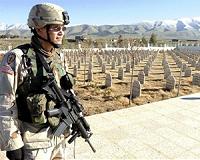| . |  |
. |
Nasiriyah, Iraq (AFP) Aug 22, 2010 Dozens of Iraqis violently protested in the southern city of Nasiriyah to demand better power supplies, wounding 16 people including 10 policemen, witnesses and officials said on Sunday. The Saturday evening demonstration involved dozens of people who shouted "Where is the electricity?", with several of them hurling stones and beating policemen with sticks, in a repeat of similar protests two months ago. In response, officers in the city, 305 kilometres (190 miles) south of Baghdad, fired water cannons to disperse the crowd and arrested 40 people. The protest was reminiscent of similar demonstrations in June in several Iraqi cities over power rationing, including one in Nasiriyah in which 17 police officers were wounded as a protest turned violent. "At 9:30 last night, dozens of people gathered in the centre of Nasiriyah to protest, saying the provincial government was not providing sufficient basic services, especially electricity," said Lieutenant Colonel Murtada al-Shahtur, spokesman for Nasiriyah police. "They threw stones and used sticks, while police fired water cannons. Ten policemen were wounded, and 40 protesters were arrested." Jabbar al-Khafaji, the head of Nasiriyah hospital's administrative department, confirmed that it had treated 10 policemen for wounds, and added that six protesters were also injured. One of the protesters, 35-year-old shop owner Kamil Hussein, accused the state and federal government of failing to live up to their pledges. "We demonstrated because we feel there is no solution to the electricity problem, and politicians have only made false promises," he said. Rasul Hussein, 28, added that he would continue to protest "to put pressure on the government to improve services." "They need to fix the electricity shortage. We need to sleep, it is too hot," Hussein, who is unemployed, said. Iraq's daily power generation averages 8,000 megawatts, while demand in the summer, when temperatures have hit 54 degrees Celsius (130 degrees Fahrenheit), is typically more than 14,000 megawatts, forcing the use of rationing. Only those with access to their own generators and fuel have been able to refrigerate foodstuffs or air-condition their homes around the clock, while others have been rendered helpless in the oppressive summer heat, triggering the protests. At the bloodiest demonstration, in the main southern city of Basra in June, police opened fire on demonstrators hurling stones at provincial government offices, killing two protesters. Iraqi Prime Minister Nuri al-Maliki, whose electricity minister resigned in the wake of the protests, has warned that two more years of shortages lie ahead as there is no quick fix to the problem, which worsened dramatically in the wake of the US-led invasion in 2003.
earlier related report In Bahrain, Brazil, Ecuador, Japan, Lebanon, South Korea, Turkey and the United Arab Emirates, they emphasized in talks that foreign banks risked losing access to the US financial system if they continued to do business with those blacklisted over the Iranian issue, a statement said. Stuart Levey, the Treasury's pointman on the Iranian sanctions, called on governments to be wary of and take steps to prevent any Iranian attempts to circumvent the sanctions. "As international pressure mounts and its economic isolation increases, Iran will attempt to seek out new channels to access the international financial system for illicit purposes," Levey said. "It is incumbent upon governments to put into place the appropriate mechanisms to protect against this threat." The UN Security Council in June slapped its fourth set of sanctions on Iran over its refusal to halt its uranium enrichment work, part of a nuclear program which many nations fear masks a drive for nuclear weapons. The United States, European Union, Canada and Australia have also announced additional sanctions. The officials who went on the trip were from the Treasury, the State Department and the White House. In meetings with senior government officials, bank regulators and banking sector leaders, the Treasury officials "highlighted the impact that the latest round of sanctions have already begun to have on Iran's economy," the statement said. It cited "the government of Iran's inability to attract foreign investment, develop its oil and gas fields, acquire financial services and maintain financial relationships with the international community." The officials made "the case for concerted action to persuade the government of Iran to change its behavior." Iran's supreme leader Ayatollah Ali Khamenei said this week that any talks with the United States would take place only if Washington drops "sanctions and threats" against Tehran. The all-powerful Khamenei also blamed Washington for Iran's defiant move to enrich uranium to 20 percent, the most controversial aspect of its nuclear program.
Share This Article With Planet Earth
Related Links Iraq: The first technology war of the 21st century
 U.S. Withdrawal From Iraq: Ending Or Outsourcing The War?
U.S. Withdrawal From Iraq: Ending Or Outsourcing The War?Moscow, Russia (RIA Novosti) Aug 20, 2010 Iraqis, along with the rest of the Muslim world, have ushered in the holy month of Ramadan, hoping it will give their thoughts some refuge from worries about Iraq's future. The country is still living without a cabinet, and only God knows when it will get one. Meanwhile, the U.S. has started withdrawing combat brigades in keeping with President Barack Obama's election pledge. All combat tr ... read more |
|
| The content herein, unless otherwise known to be public domain, are Copyright 1995-2010 - SpaceDaily. AFP and UPI Wire Stories are copyright Agence France-Presse and United Press International. ESA Portal Reports are copyright European Space Agency. All NASA sourced material is public domain. Additional copyrights may apply in whole or part to other bona fide parties. Advertising does not imply endorsement,agreement or approval of any opinions, statements or information provided by SpaceDaily on any Web page published or hosted by SpaceDaily. Privacy Statement |